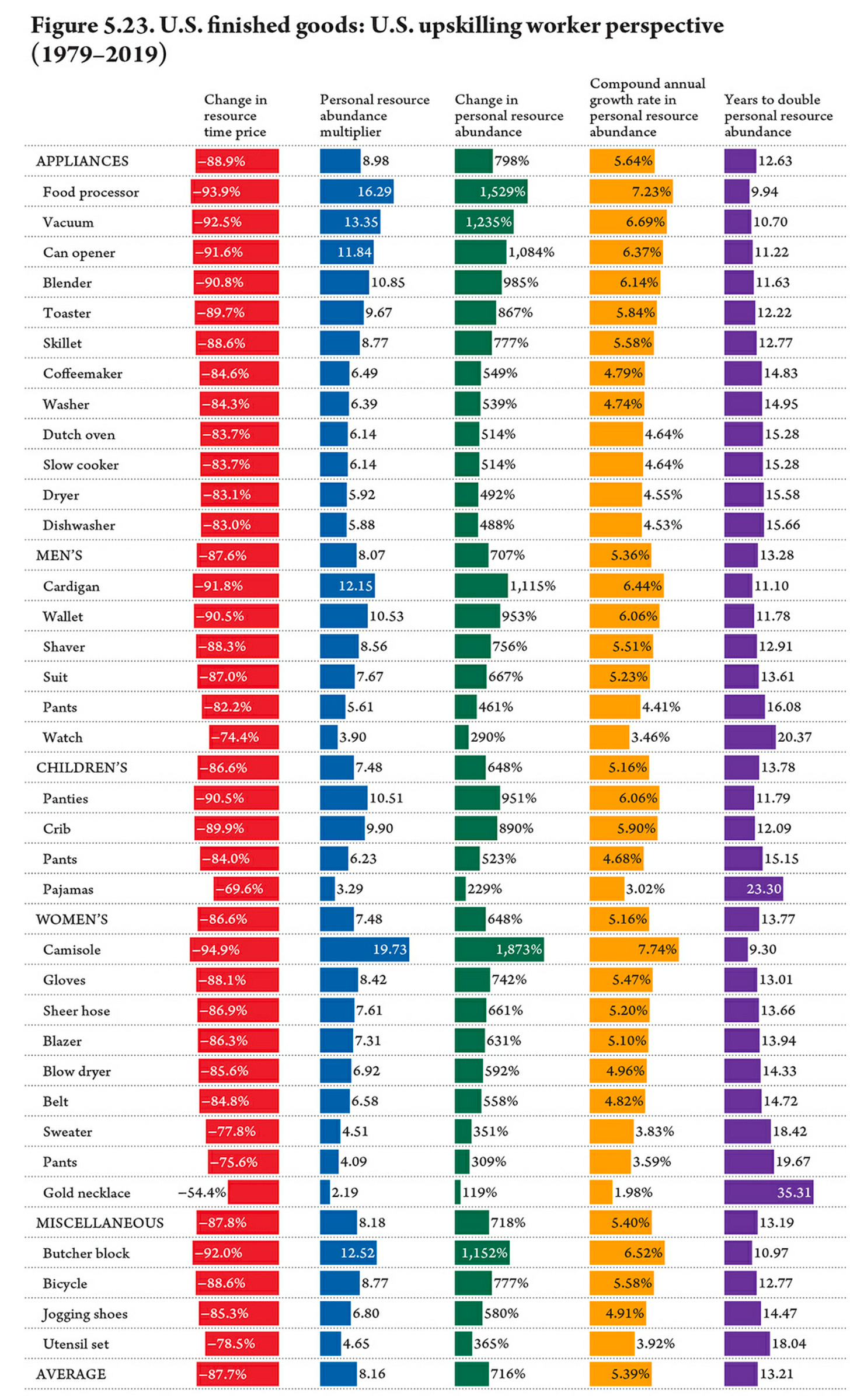Wealth & Poverty Review From 1979 to 2019 Finished Goods Became 761 Percent More Abundant for Upskilling Workers
Originally published at Substack35 consumer goods take 54.4% to 94.9% less time to earn the money to buy.
Most of us begin our work life as unskilled workers. But we learn new skills every day and this allows us to upgrade to higher-paying jobs. In a word, we enjoy career mobility. This is why it is important to follow a person’s path through their economic life.
We create categories to divide populations into groups. Categories can provide useful demographic snapshots. Categories don’t change but people move through categories throughout their lives. This is why in many cases it makes more sense to look at individuals instead of categories. We talk about this issue here.
We looked at the time prices of 35 finished goods for workers who started out as unskilled workers and moved up to blue-collar workers. We call these people upskilling workers. Over the 40 year range time prices fell by an average of 87.7 percent. This means that for the time required to buy one item in 1979 you would get 8.16 in 2019. Personal abundance for upskilling workers has been increasing at a 5.38 percent compound annual rate. At this rate abundance doubles every 13 years or so.


